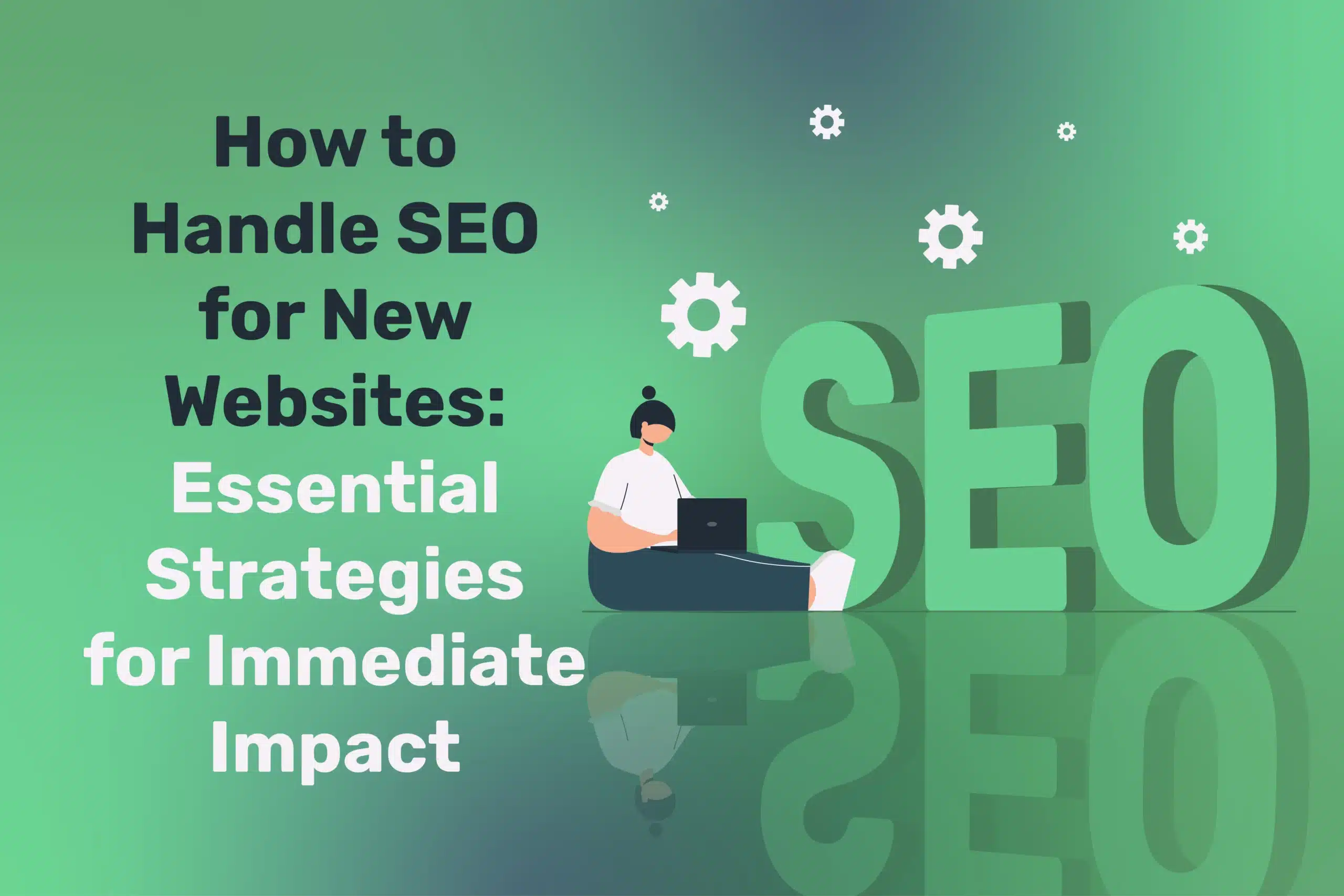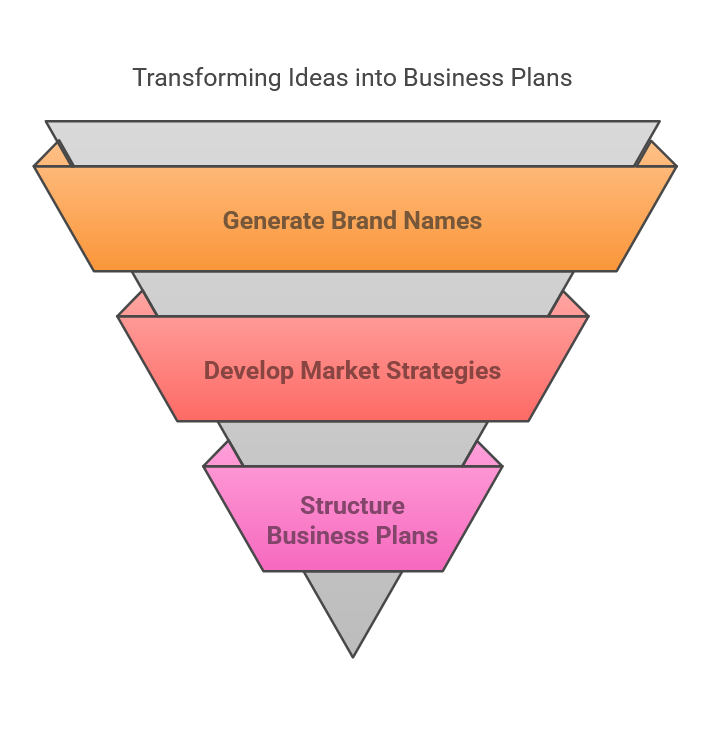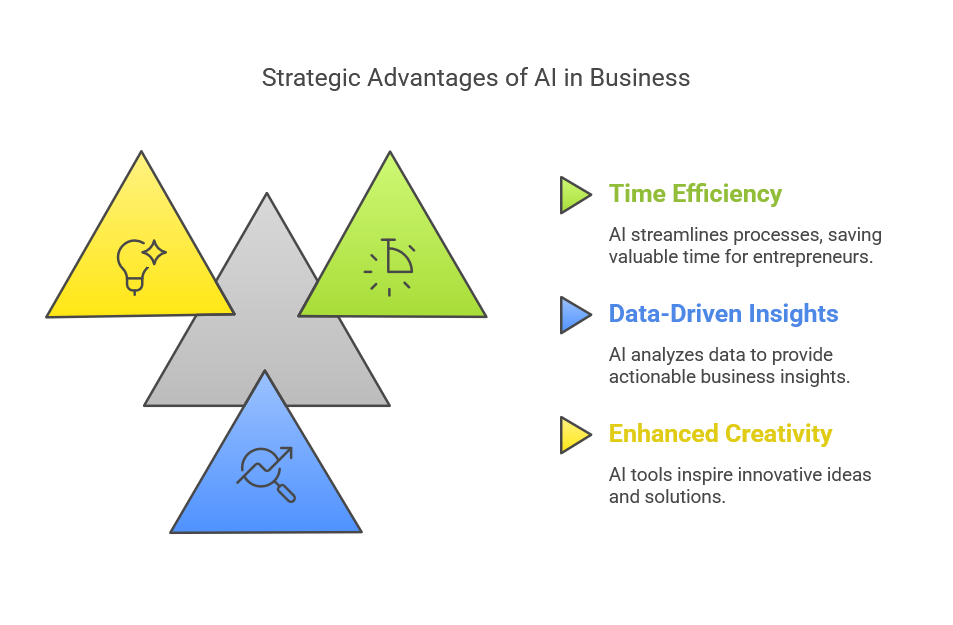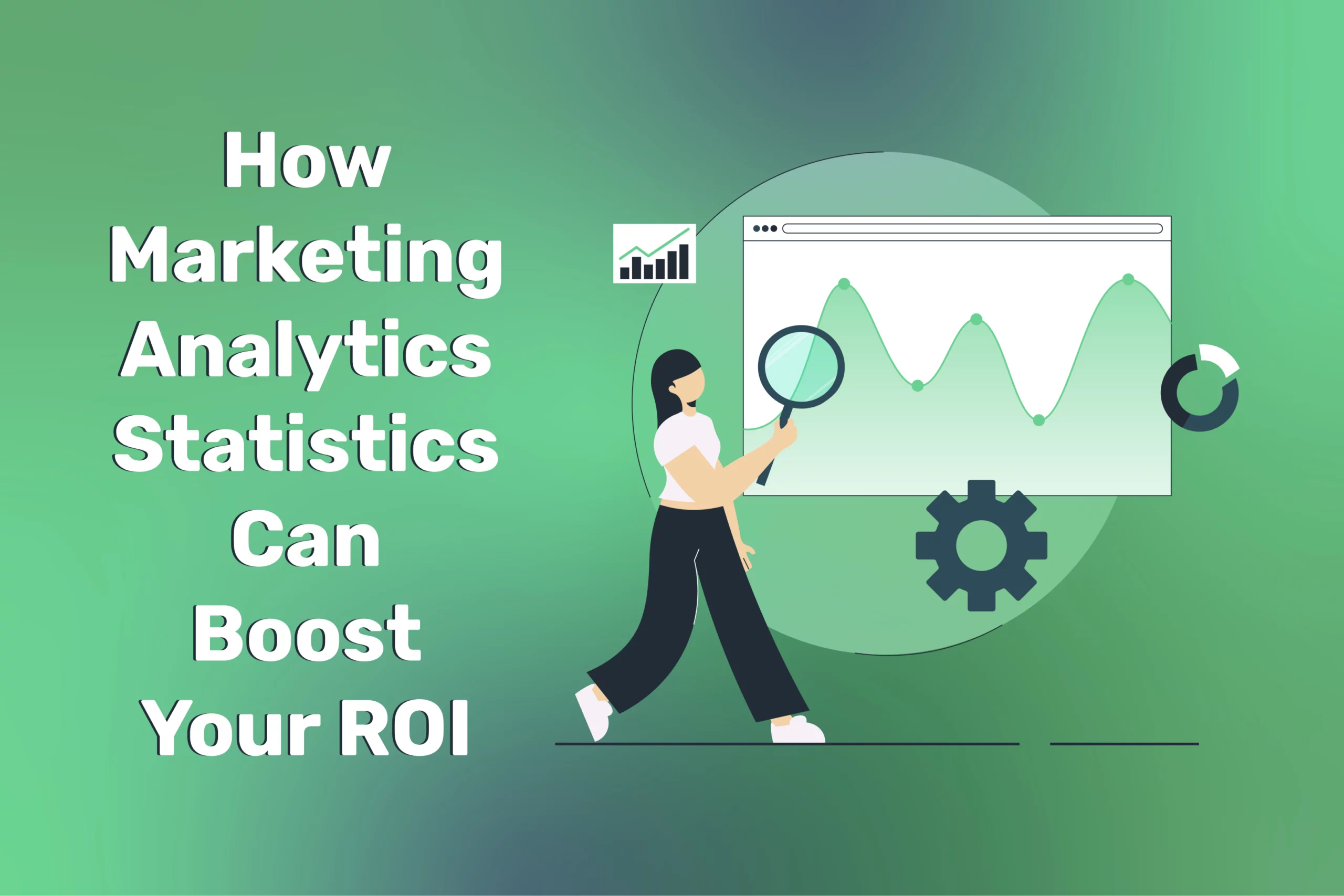
AI Business Generators: Turning Ideas into Startups
Table of Contents
Launching a new business venture has traditionally involved numerous time-consuming processes—comprehensive market research, detailed competitor analysis, extensive brand development, and creating a coherent business plan. For many entrepreneurs, these initial steps can present significant barriers to entry. AI business generators are transforming this landscape by streamlining these foundational processes, analysing vast datasets, suggesting viable brand names, testing product feasibility, and even drafting preliminary business plans.
For aspiring entrepreneurs, these AI-powered tools significantly reduce friction in the startup process, allowing them to concentrate on refining unique value propositions, establishing strategic partnerships, and developing minimum viable products. This comprehensive guide explores the emerging field of AI-driven startup ideation, examines leading platforms, and provides a strategic framework for combining these technological tools with real-world validation to maximise success.
Understanding AI Business Generators

AI business generators are tools that use artificial intelligence to help entrepreneurs quickly turn ideas into structured business plans, from brand names to market strategies.
Core Definition and Functionality
AI business generators are sophisticated digital platforms that process user inputs (product concepts, target audience descriptions, and budget parameters) to produce structured outputs, including competitor insights, brand name suggestions, domain availability assessments, and preliminary financial projections. These tools leverage natural language processing, machine learning, and access to extensive market databases to transform entrepreneurial concepts into more concrete business frameworks.
Why Entrepreneurs Are Embracing These Tools
Accelerated Ideation Process: Entrepreneurs can generate multiple business concept frameworks in minutes or hours instead of spending weeks on initial research and planning.
Data-Informed Decision Making: These tools often analyse current market trends, consumer behaviour patterns, and competitive landscapes to provide data-backed recommendations.
Reduced Barriers to Entry: Individuals with limited business experience or research resources can access structured guidance and professional-quality outputs that would otherwise require significant expertise.
Idea Validation Support: Entrepreneurs can rapidly test multiple concepts without substantial investment, identifying promising directions before committing significant resources.
Leading AI Business Generator Platforms
Explore the top AI business generator platforms transforming the entrepreneurial process, offering tools for brand development, business modelling, and market analysis.
Brand and Domain Name Generation
Namelix
Primary Focus: AI-powered brand name creation and domain availability checking.
Methodology: Users enter keywords, industry information, or a brief mission statement, and the system generates creative, memorable, and available brand name options.
Key Features:
- Visual logo concept generation alongside name suggestions
- Domain availability verification
- Name style preferences (short, brandable, compound words)
- Free basic tier with premium options
Limitations:
- Lacks deeper business planning functionality
- May occasionally suggest names with trademark complications
Squadhelp
Primary Focus: AI-assisted naming with human creative input.
Methodology: Combines AI name generation with crowdsourced creative input from professional naming experts.
Key Features:
- Industry-specific naming algorithms
- Comprehensive trademark screening
- Audience testing of potential names
- Domain acquisition assistance
Limitations:
- Higher cost than pure AI solutions
- Longer timeline than instant generators
Business Model and Strategy Development
Lean Canvas AI
Primary Focus: Automated creation of Lean Canvas business models.
Methodology: Users input basic business concepts, and the system populates a structured Lean Canvas template addressing problem statements, unique value propositions, customer segments, and revenue models.
Key Features:
- Structured business model visualisation
- Suggestion of potential revenue streams
- Identification of key metrics to track
- Export options for presentation and sharing
Limitations:
- Outputs may require significant refinement
- Limited customisation for niche industries
IdeaFlow
Primary Focus: Market opportunity analysis and competitive intelligence.
Methodology: Analyses user-provided business concepts against market data, competitor performance, and consumer trends.
Key Features:
- Comprehensive competitor identification
- Traffic and engagement metrics for similar businesses
- Consumer Interest Trend Analysis
- Market gap identification
Limitations:
- Data accuracy varies by industry and region
- Requires verification through additional research
Comprehensive Startup Development Platforms
Futurpedia
Primary Focus: All-in-one AI startup development environment.
Methodology: Integrated platform combining business ideation, planning, financial modelling, and marketing strategy development.
Key Features:
- End-to-end business development workflow
- Template library for various business documents
- Financial projection tools
- Marketing strategy generation
Limitations:
- Steeper learning curve than single-purpose tools
- Premium features require a subscription
GrowthBar
Primary Focus: AI-powered market research and SEO strategy for startups.
Methodology: Analyses market opportunities through search data, competitor content strategies, and keyword potential.
Key Features:
- Identification of untapped market opportunities
- Competitor content gap analysis
- Automated content strategy development
- Keyword difficulty and opportunity assessment
Limitations:
- Primarily focused on digital marketing aspects
- Less comprehensive for non-digital businesses
Strategic Benefits of AI Business Generators

AI business generators offer significant strategic advantages, including time efficiency, data-driven insights, and enhanced creativity, helping entrepreneurs build successful ventures faster and more effectively.
Time and Resource Efficiency
AI business generators dramatically compress the timeline from the initial concept to the structured business framework. Tasks that traditionally required weeks of research and planning can now be accomplished in hours or days:
- Generating and testing dozens of potential brand names simultaneously
- Producing initial competitor analyses across multiple markets
- Creating preliminary financial projections based on industry benchmarks
- Developing structured business plan frameworks without starting from blank documents
This acceleration allows entrepreneurs to allocate more resources to validation, product development, and customer acquisition rather than preliminary planning.
Enhanced Ideation Breadth
By generating multiple perspectives and approaches, AI tools help entrepreneurs explore a broader range of possibilities than they might consider independently:
- Different market positioning strategies for similar products
- Various customer segment prioritisations
- Alternative revenue models and pricing structures
- Diverse brand identity approaches
This expanded ideation landscape often leads to more innovative and differentiated business concepts with stronger market potential.
Financial Accessibility
Professional business planning services typically require significant investment. AI business generators democratise access to sophisticated business development tools:
- Reducing or eliminating consulting fees for initial concept development
- Minimising the need for specialised software purchases
- Allowing entrepreneurs to allocate limited startup capital to product development and market testing
- Enabling bootstrapped ventures to present professional-quality business frameworks to potential investors
Iterative Development Support
The speed and flexibility of AI tools enable a more agile approach to business development:
- Rapidly testing alternative business models in response to feedback
- Quickly adapting to changing market conditions or competitive landscapes
- Generating new iterations of business plans as the concept evolves
- Supporting pivot decisions with data-informed alternatives
Limitations and Mitigation Strategies
While AI business generators provide valuable tools, they come with certain limitations. This section explores potential challenges and offers strategies to mitigate them effectively.
Output Quality Concerns
Challenge: AI-generated content may sometimes be generic, outdated, or insufficiently tailored to specific market contexts.
Mitigation Approaches:
- Verify all factual claims and market data through independent sources
- Use AI outputs as starting points rather than final products
- Compare results across multiple AI platforms to identify consistencies and discrepancies
- Apply industry-specific knowledge to refine and customise generic recommendations
Overreliance Risks
Challenge: Entrepreneurs may trust AI recommendations excessively without sufficient critical evaluation or real-world testing.
Mitigation Approaches:
- Establish a structured validation process for all AI-generated concepts
- Conduct customer interviews to verify problem statements and solution appeal
- Create minimal viable products to test key assumptions before full commitment
- Seek feedback from industry experts on AI-generated business strategies
Legal and Intellectual Property Considerations
Challenge: AI systems may suggest brand names, business models, or concepts with existing trademark protections or intellectual property restrictions.
Mitigation Approaches:
- Conduct comprehensive trademark searches for all brand name suggestions
- Verify domain availability through official registrars
- Consult legal advisors before finalising business identity elements
- Implement proper clearance procedures for any AI-generated content used in marketing
Contextual Understanding Limitations
Challenge: AI systems may lack a nuanced understanding of local markets, cultural contexts, or industry-specific regulations.
Mitigation Approaches:
- Supplement AI insights with local market research
- Consult with regional experts when entering unfamiliar markets
- Verify regulatory compliance requirements independently
- Adjust business models to accommodate cultural and regional differences
Implementation Framework for Entrepreneurs
This section outlines a structured approach for entrepreneurs to implement AI business generators effectively, from strategic inputs to tool selection and real-world validation.
Preparation and Strategic Inputs
The quality of AI-generated outputs directly correlates with the specificity and clarity of user inputs. Before engaging with AI business generators:
- Define Core Concept Parameters:
- Articulate the fundamental problem your business will solve
- Identify primary target customer segments with demographic and psychographic details
- Establish preliminary budget constraints and resource limitations
- Clarify your unique expertise or competitive advantages
- Gather Preliminary Research:
- Collect any existing market data or customer insights
- Identify known competitors or adjacent solutions
- Document regulatory or industry-specific considerations
- Outline geographical focus or expansion plans
- Establish Evaluation Criteria:
- Define what makes a business name or brand identity appealing to your target audience
- Determine key metrics for assessing business model viability
- Identify non-negotiable elements that must be present in any solution
- Create a framework for comparing multiple AI-generated options
Tool Selection and Utilisation
Different business concepts benefit from different AI generator specialisations:
- Match Tools to Specific Needs:
- Use specialised naming platforms for brand identity development
- Select market analysis tools for competitive landscape assessment
- Choose business model generators for structure and strategy
- Implement financial modelling tools for projections and funding requirements
- Optimise Prompting Techniques:
- Provide specific, detailed information rather than vague concepts
- Include industry terminology and market-specific language
- Experiment with different phrasings to explore various outputs
- Specify constraints and requirements clearly
- Generate Multiple Variations:
- Run several prompt iterations with slightly modified parameters
- Test different market positioning approaches
- Explore various customer segment prioritisations
- Generate alternative revenue models and pricing structures
Critical Evaluation and Refinement
AI outputs should serve as starting points rather than final solutions:
- Systematic Assessment Process:
- Evaluate outputs against predetermined criteria
- Identify strengths and weaknesses in each generated concept
- Compare outputs across different AI platforms
- Assess feasibility within resource constraints
- Hybrid Concept Development:
- Combine elements from multiple AI-generated concepts.
- Integrate unique insights from personal expertise
- Adapt generic recommendations to specific market contexts
- Enhance differentiation factors beyond AI suggestions
- Iterative Improvement Cycles:
- Feed refined concepts back into AI tools for further development
- Address identified weaknesses with targeted improvements
- Incorporate feedback from preliminary stakeholder reviews
- Document the evolution of the business concept through iterations
Validation and Real-World Testing
AI-generated concepts require validation before significant investment:
- Customer Discovery Interviews:
- Present concept elements to potential customers
- Verify problem statements and solution appeal
- Assess willingness to pay and pricing sensitivity
- Identify unforeseen objections or concerns
- Minimum Viable Product Development:
- Create simplified versions of the proposed solution
- Test core functionality with early adopters
- Gather usage data and feedback
- Identify required modifications before full development
- Market Testing Strategies:
- Deploy landing pages to gauge interest and collect leads
- Run limited digital marketing campaigns to assess response
- Conduct A/B testing of different positioning approaches
- Evaluate engagement metrics across various customer segments
Advanced Strategies for Maximum Impact
Unlock the full potential of AI business generators with advanced strategies that integrate multiple tools, enhance data quality, and refine concepts for maximum business success.
Integrated Tool Ecosystems
Sophisticated entrepreneurs can create powerful workflows by combining multiple AI tools:
Multi-Platform Synthesis:
- Use specialised tools for each business development phase
- Create systematic processes for transferring outputs between platforms
- Develop custom templates for consolidating insights from various sources
- Build comprehensive dashboards integrating multiple AI tool outputs
Cross-Validation Techniques:
- Compare outputs across different AI platforms to identify consistencies
- Use contradictions between tools as signals for deeper investigation
- Implement weighted scoring systems for evaluating conflicting recommendations
- Develop reconciliation processes for divergent AI suggestions
Data Enhancement Strategies
Improving the quality and specificity of data provided to AI systems significantly enhances output quality:
Proprietary Data Integration:
- Feed existing customer data into AI systems when available
- Incorporate results from previous market research or testing
- Provide competitive intelligence from firsthand industry experience
- Include specific metrics from comparable businesses when accessible
Targeted Research Supplementation:
- Conduct focused research to fill specific knowledge gaps identified in AI outputs
- Gather specialised industry data to improve contextual relevance
- Collect regional market information for local adaptation
- Secure customer testimonials or feedback to validate problem statements
Continuous Learning Implementation
The most effective use of AI business generators involves ongoing refinement based on real-world feedback:
Feedback Loop Development:
- Create structured processes for incorporating market testing results
- Implement systematic documentation of concept evolution
- Develop metrics for assessing improvement across iterations
- Establish trigger points for major pivots or refinements
Progressive Complexity Management:
- Begin with foundational elements and gradually increase complexity
- Layer additional business components as core concepts solidify
- Expand geographic or demographic scope incrementally
- Add product/service line extensions after validating primary offerings
Future Developments in AI Business Generation
The future of AI business generation promises exciting advancements, with evolving technologies and methodologies that will further streamline entrepreneurship and enable more personalised business solutions.
Technology Evolution Trends
The capabilities of AI business generators continue to advance rapidly:
Integrated Ecosystems:
- Comprehensive platforms combining ideation, planning, financial modelling, and marketing
- Seamless workflows from concept to execution planning
- Unified data environments ensure consistency across business functions
- Collaborative features supporting team-based entrepreneurship
Conversational Business Development:
- Voice-based interfaces enable natural dialogue about business concepts
- Real-time refinement through conversational feedback
- Collaborative ideation between entrepreneurs and AI assistants
- Transcription and documentation of verbal brainstorming sessions
Vertical Specialisation:
- Industry-specific generators with deep domain knowledge
- Regulatory compliance assistance for complex sectors
- Specialised financial models for different business types
- Customised metrics and benchmarks for various industries
Entrepreneurial Methodology Advancements
As AI tools evolve, entrepreneurial approaches are also transforming:
Rapid Experimentation Frameworks:
- Testing dozens of business concepts simultaneously
- Implementing parallel validation tracks for different market segments
- Developing portfolio approaches to entrepreneurial endeavours
- Quantifying and comparing market potential across multiple concepts
Hybrid Intelligence Models:
- Structured collaboration between human creativity and AI analytical power
- Complementary workflows leveraging respective strengths
- New entrepreneurial roles focused on AI tool orchestration
- Communities of practice sharing effective AI utilisation techniques
Democratised Entrepreneurship:
- Reduced knowledge barriers enabling broader participation
- Global access to sophisticated business development tools
- Emerging markets leveraging AI to overcome resource limitations
- New entrepreneurial education focused on AI-augmented approaches
The Balanced Approach: Blending AI Efficiency with Entrepreneurial Intuition
AI business generators represent a transformative set of tools for modern entrepreneurs, dramatically accelerating the journey from initial concept to structured business framework. These technologies offer unprecedented efficiency in tasks ranging from brand development and market analysis to financial modelling and strategic planning. However, their most significant value emerges when combined with the uniquely human elements of entrepreneurship: creative intuition, authentic passion, and genuine customer empathy.
The most successful implementations of AI business generators maintain a careful balance—leveraging algorithmic efficiency for routine tasks and data analysis while preserving human judgment for strategic decisions and relationship building. This hybrid approach enables entrepreneurs to focus their limited time and energy on the aspects of venture creation that benefit most from personal attention while delegating standardised processes to AI systems.
As these tools continue to evolve, entrepreneurs who develop systematic approaches to integrating AI assistance into their workflows will gain significant advantages in speed, efficiency, and analytical depth. However, the fundamental determinants of business success remain unchanged: identifying genuine customer needs, delivering compelling value propositions, and building authentic connections with the markets they serve.
The future of entrepreneurship lies not in choosing between human creativity and artificial intelligence but in discovering the optimal synthesis of both—in creating businesses that are simultaneously data-informed and deeply human-centred.
Conclusion
AI business generators are revolutionising the entrepreneurial landscape by providing aspiring business owners powerful tools to streamline the ideation, planning, and development processes. From generating brand names to crafting business models and financial projections, these platforms significantly reduce the barriers to entry, making it easier for entrepreneurs to move from concept to execution in record time. The strategic benefits—such as time and resource efficiency, enhanced ideation breadth, and financial accessibility—are particularly valuable in an environment where speed and data-driven decisions are paramount.
However, despite their immense potential, these tools should not be seen as a substitute for human expertise and intuition. Entrepreneurs must balance AI efficiency with critical real-world validation and personal insight. By integrating AI-generated outputs with a human-centric approach, entrepreneurs can more effectively navigate the complexities of starting a business. As AI continues to evolve, the future of business generation will likely be characterised by an even deeper integration of AI tools tailored to specific industries and refined entrepreneurial methodologies.
By blending AI’s capabilities with human entrepreneurs’ intuition, creativity, and empathy, the path to building successful businesses will be increasingly data-driven yet deeply personal, offering a balanced approach to success.




